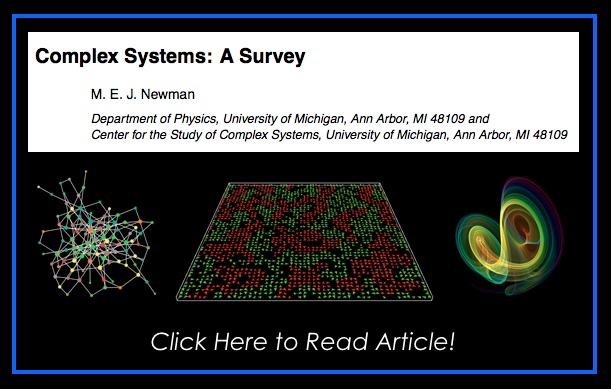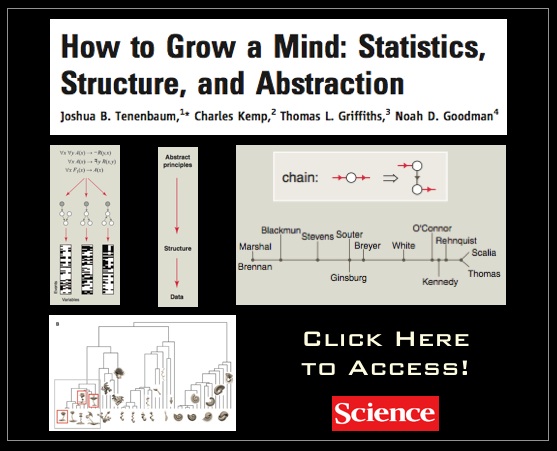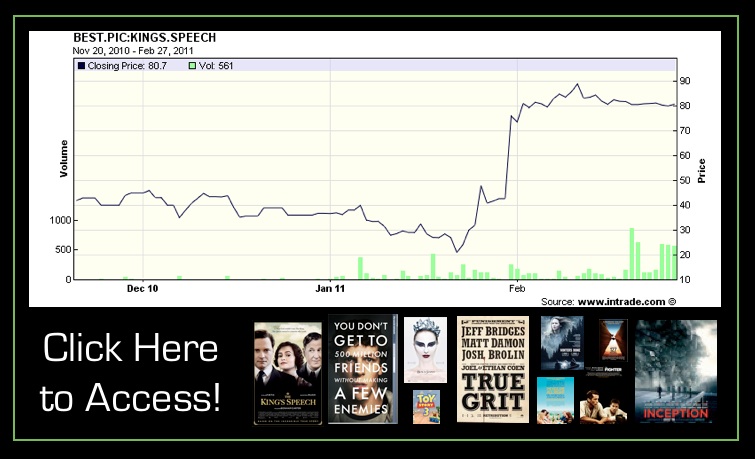From the abstract: “A complex system is a system composed of many interacting parts, often called agents, which displays collective behavior that does not follow trivially from the behaviors of the individual parts. Examples include condensed matter systems, ecosystems, stock markets and economies, biological evolution, and indeed the whole of human society. Substantial progress has been made in the quantitative understanding of complex systems, particularly since the 1980s, using a combination of basic theory, much of it derived from physics, and computer simulation. The subject is a broad one, drawing on techniques and ideas from a wide range of areas. Here I give a short survey and an annotated bibliography of resources for those interested in learning about complex systems.” [By Mark E.J. Newman – Submitted to Amer. J. Physics]
Complex systems is a relatively young subject area and one that is evolving rapidly, but there are nonetheless a number of general references, including books and reviews, that bring together relevant topics in a useful way. ” The paper then has recommended materials on major topics relevant to the study of complex systems including:
- Lattices and Networks
- Dynamical Systems (including Chaos & Fractals)
- Discrete Dynamics and Cellular Automata
- Scaling and Criticality
- Adaptation and Game Theory
- Information Theory
- Computational Complexity
- Agent-Based Modeling
“Classic examples of complex systems include condensed matter systems, ecosystems, the economy and financial markets, the brain, the immune system, granular materials, road traffic, insect colonies, flocking or schooling behavior in birds or fish, the Internet, and even entire human societies.”











